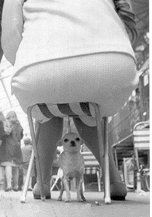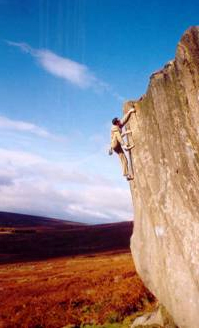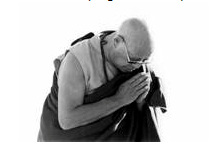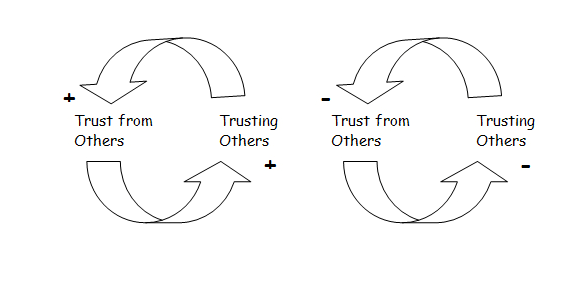THE QUESTION OF TRUST
WRITTEN BY: ADAM CHAN
The Question of Trust
By Adam Chan
Human instinctively seeks happiness and peace as the ultimately state of mind. An artist must paint and a musician must play, one must do what he aspired to do best in order to develop. It may seem achievable through persistence but we know it well enough, any individual achieving such form of personal mastery is usually supported by those who are connected to the individual. Connection is the bridge for relationships and it acts like adhesive that binds and fuses this connection which is commonly known to us as Trust. This value is of bedrock status, like a cornerstone of a building, it binds people together in all contexts, trust cuts through cultural barriers as well as through space and time. It is not bonded to materials and conditions of the secular world but it demands for commitment like oxygen to humans, at the same time it has no limit to how much we can give. Less we can discern it; trust will evaporate like vapor without a trace and effects. Does the picture of the cute dog communicates trust to you?
Trust is tacit, often we don’t explicitly express it towards other people verbally rather in a combination of gestures and words, timing and environment. That makes it harder to discern but certainly it can be felt. We yearn for it when we don’t feel its presence but when it is abundance we often don’t hold on to it.
Trust in Various Aspects
Trust transcend through culture, races, geography, space and time. Probably, there are various aspects of trust that we are aware of its presence and influence. They are too worthy for us think about especially the relationship of each aspect to another. This tacit relationship is hardly easy to comprehend, sometimes even paradoxical. Over-analyzing may result in overwhelming amount intertwined factors that are beyond our channel capacity. If we are unable to synthesize the bits and pieces of data we have systematically torn apart, it has little or no value to strip it to pieces to start with. We ought to discern trust rather to comprehend it. To know trust, let’s try to us our hearts to feel instead of restricting to our heads.

Trust Oneself (Self-efficacy)
Do we need to trust ourselves? Often we think this is about garnering self-confidence but it is hardly the case. To develop the ability to mobilize oneself to perform an insurmountable feat requires self-efficacy. It is defined as people’s beliefs about their capabilities to produce designated levels of performance that exercise influence over events that affect their lives. Most people would describe it as trusting oneself. Life challenges are inevitable and some will strike fear in our hearts or send chill to our bones. If overwhelmed, one may be paralyzed to an extent in losing the ability to make decisions at critical moments. Essentially we are making decisions daily to move ahead with our lives for time moves ahead regardless our following. Hence the ability to make decision nothing less than critical in our lives.
When faced with a daunting challenge, we respond in two common ways. Fight or flight. What may influence what we choose has much to do with the level of self-efficacy each person perceives, a.k.a. trusting oneself. The higher the self-efficacy, likely one can manage any daunting challenges with composure. Albert Bandura, a renowned psychologist who practices behavioral science suggested four main sources of self-efficacy. They are;
- Mastery Experience– any well developed relevant experience will assist the person in having a higher self-efficacy in taking on challenges.
- Vicarious Experiences– modeling from others, e.g. learning to play an instrument by viewing an expert in action.
- Social Persuasion(verbal persuasion) – positive encourage or persuasion from people who show care and concern for the person.
- Physiological State– the current state of mind prior to taking on the challenge.
More readings on the 4 sources can be found at: http://www.des.emory.edu/mfp/effpassages.html
Trust others(Skills, Knowledge & Attitude)
We often wonder if chickens existed before chicken eggs or vice versa. Nobody could draw a conclusion to this. Perhaps there are things we will never understand totally in the logically sense but we have fully accepted their existence and relevance. For the question of trust, we know very well both its goodness and vulnerability. We then raise question regarding trust and hope to feel for an answer; should I give trust or wait for it to come? This question has uncanny paralleled notions to that of the “Chickens and Eggs” paradox.
When trust is given and reciprocated with no questions asked, the giver can feel powerless yet not stripped or vulnerable, instead the sense of goodness and peace can be felt rising from inside. We can probably recall one or few significant moments when we have unconditionally give our trust. From the physiologically sense, the sensation of this gesture would be best described as a gently progressive swelling of the heart, dilated pupils, sweaty palms and a sudden increase in breathing. You might find this description familiar, especially to married couples, that memorable moment when both exchange vows saying “I do”. Essentially both parties has given each other their commitment unconditionally, two have become one.
The rapid pace in any corporate settings seems to have transformed trust to other forms beyond our recognition thus we find it hard to discern its presence from layers of masks and distractions. In certain ways, trust has been woven into work processes like meetings, delegation of tasks, handling projects, managing peers, etc. Being competent does help to gain a certain degree of trust from others. E.g. delegating tasks in accordance to the level of competency a.k.a. skill and knowledge; trusting the executors’ ability to carry out the tasks with excellence. A caveat to this; such trust is build upon a changeable foundation, i.e. competency. What if technology has overtaken competency or the initial competency has been relegated to outdated rudimentary skills? Will such trust remain? Would the opportunities be delegated again?
Human creations are countable and measurable, these creations brought about convenience and better lifestyle. Ironically, the have not being found enduring. Even the resolute earth’s gravity is not permanent; the notion of light traveling in straight line can be changed too. Beyond earth, gravity ceases to function as a constant. The many sightings from astronomers reported that light can be bent if the gravitation force is strong enough. The theory of relativity suggested a universal connectedness between all items, regardless living or not. Therefore constant is a perception and once relationships are disconnected, being constant has lost its relevance as like gravity on earth remains constant but not beyond it.
Have humans not tried arduously to quantify, gauge, classed, etc. what we have on this planet? A learner driver needs to obtain minimum number ticks on the check boxes during the driving test to obtain a legitimate license. Would the number of ticks mean anything when an accident occurs on the road? Would the driver be acquitted of the responsibility of the accident because of the ticks on the check boxes? How about giving trust to the driver thus concluding that we will trust the driver for repentance and not demanding for tangible accountability? The society is unlikely to accept such judgment. Therefore trust diminishes when conditions flourish.
Skill and knowledge can be measured and re-measured. Are they real and lasting? Perhaps this is a lengthy way to explain why trust will not be enduring when it is build upon these measurable properties or elements.
Can positive attitude help to build trust among people? Certainly it will. We naturally get along with people we find similar or possessing positive attitude towards life in general. With positive attitude, it augments the inter-personal relationships among people thus trust is naturally built. Once again with the absence of positive attitude, trust can be lost, isn’t it?

Perhaps the anecdotes and perspectives mentioned in the previous sections all point to an unthinkable notion; trust is not to be built on any foundation, trust by itself is the foundation, the corner stone, the fundamental, ground zero, the seed etc. it allows us to get connected to our deepest core-self as well as others and the world we are in. Something that is so secured and founding needs no foundation. When we give trust it should come with no conditions; no expectations for it to be reciprocated, for if it is pure it will be reciprocated naturally.
When we build trust upon skill, knowledge and attitude, we are building trust on various sets of comprehensible conditions. If the conditions are met, trust will be granted. Essentially trust is being traded like commodities or shares under such settings. Any trade agreements come with conditions; it is implicit that conditional trust doesn’t last because conditions are not enduring. In a nutshell, conditional trust is trading.
Trust the System & Equipment
We are surrounded by numerous systems created by humans. Inadvertently, we utilize the available systems to enable us to achieve our daily goals, both major and minor ones. In any subset of any established systems, processes are often found in them, guiding, channeling or funneling both material and manpower resources to achieve certain desire outcomes. (goals, revenue targets, etc.)
Technologies have become an integral part of our lives. The “black boxes” have dominated our living rooms, taken top spot as the accessory of choice, our reliance on it only increases and most have little or no idea what goes on in the “black boxes”. Can we trust this box? Perhaps life moves regardless and we all gradually got accustom to these “black boxes” as part of our lives. It wouldn’t work for anyone if we carry doubts all the time, isn’t it? We enjoyed the convenience they brought for us thus we learned helplessly to rely on these boxes to rule our lifestyles. Certainly they have given us a new kind of inconvenience but over time, we gradually learn to accept the imperfections of these “black boxes” as their standing increases in our lives. Perhaps we have subconsciously developed a relationship with these boxes and learned to trust them even most of people have no directly influence over the functionality of the boxes.

Adrenalin junkies go to great length to seek for thrilling activities to fulfill the rush. Sports climbers relied totally on a fall protection system to govern their lives when they immense themselves in this potentially hazardous activity. The same fall protection system is being utilized in cleaning operations of skyscrapers. Users have learned to rely on the fall protection system as they gain proficiency in using the system they have conceived originally. The trust relationship in this aspect is different from the “block boxes” one. Users have acquired proficiency through training before they use the system. Users are directly responsible for the outcome. We can generalize that with higher proficient, greater the trust on the system.
Humans develop procedures in tandem with the needed equipment to make up a system. Users of the system receive training from the developers to build their trust in the procedures and equipment thus the system.
Trust the Environment (Nature or Social Norms)
We exist in the presence of the environment. It can be totally natural or man-made.
Trusting the social norms, we make important decisions base on the influences from the norms. In the work settings, social norms can be viewed as the organization culture and we commonly define organization culture as “the way things are around here”. More than often, “the ways” are not explicit, new comers learn “the ways” along with the other functional competencies. If culture is tacit, how would one be assured to join any given organization especially not knowing if the theory-in-use culture corresponds to the espoused culture?
People living in extreme climate habitat have little options to doubt when it comes to food source availability. Eskimos navigate miles on treacherous ice sheet, exposed directly to the onslaught of the extreme weather conditions to locate the very scarce food source around the polar region. Margin for error is extremely slim in such environment. Possessing knowledge of the weather, equipment and wild life is imperatives to staying alive. When facing a life and death situation, an experienced Eskimo can synthesize the knowledge and information, making decision that will mitigate any adverse situations; this is commonly known as experience based judgment.
In Amazon jungle, in the effort to stay alive in the jungle, the survivor gradually learns to trust the vines to take his/her weight whilst climbing from high to low grounds. As the survivor gained knowledge of the environment, bolder judgments can be made, like consuming unusual living things in the jungle. Making bolder judgment may very well come from the familiarity to the environment which correlates to increasing in trust. Don’t we trust someone who we know and get along very well?
In general, any society is governed by policies and laws which form the environment. People who live in the environment bounded by these policies and laws gradually learn to trust these rules or some may be conditioned to “the way things are”. It is clear now that we apply discernment in terms of building and granting trust to people, systems or environment. The way trust is fostered doesn’t go with the “one size fits all” notion.
Trust Faith (Supernatural)

An expression of trust; commonly used in the context of religion and beliefs. Nobody has seen GOD in person and yet people can exhibit such strong and firm belief of His presence and existence. Such belief is also known as “Faith” and believers have learned to sense and discern GOD’s presence. Believers know and firmly acknowledge their relationships with GOD even there are no scientific evidence to prove GOD’s existence. Most importantly, believers don’t require such prove of existence, they simple know GOD is with them, all the time.
We have diverse views on this relationship which give rise to the various denominations in this world. Regardless of what denominations, this form of trust between GOD and man requires no conditions except faith. It would be fair to consider faith as the highest form of trust that men can surrender.
The Logic in Trust?
The ease and difficulty in giving trust lies in the ingrained assumptions held by every individual. Assumptions can either augment or limit the ability of giving trust. We often question what if the given trust is not reciprocated? At worse, it is displaced.
Picture this; at the subway during the morning rush hour, standing at a carriage door was a crowd of commuters waiting for the arriving train. A pair of yellow lines painted on the floor extending outwards from the carriage door denotes the restricted zone to be left vacant for alighting commuters. The crowd automatically forms along both yellow lines but not in the restricted zone; cautiously each commuter strategically positioned themselves to obtain superiority over his or her neighbors, anticipating for the train to arrive in minutes.
The sound of the train wheels rolling on the rails increases in volume, the headlight illuminates the leading rails, the mellow screeching braking tone radiating from wheels, the all too familiar commuter broadcast echo through the entire subway offering kind and gentle reminders to all. Suddenly, at the every last moment just before the train halted, a foot straddles into the restricted zone to gain a strategic positioning advantage over another commuter, this action did not go unnoticed and like the opening of a flood gate, the commuters started shoving and jostling their way through the tiny opening that is designed for just two to three persons and yet the football teams of commuters came converging at the opening, placing no regards on its capacity. The results were a bunch of anger charged, disgusted and disappointed commuters has boarded the train slower than what would have been faster if they simply queue to get in instead.

Why did that happen? Did they not know that queuing is a faster?
The general assumption might be queuing is meant for stupid people and smart people always get there first. Queuing seems too civilize to be adopted in a subway environment. Boarding first matters most in rush hour. If others don’t bother to queue up, why should I? Queuing up is not a culture here. When in Rome, do what the Roman does.
This is linear mindset. In another words, each person is solely responsible for his or her own decisions and actions that are isolated from all others. From a systemic point of view, we can certainly identify the negative reinforcing effects of the mentioned assumptions have on trust (see diagram below). Harboring those thoughts not only limits any possible growth in trust, it breeds distrust among people. Eventually it will be manifested in the behavior among people as illustrated in the rush hour anecdote. Nobody mention the word distrust but their behaviors and actions towards one another speaks volume. Conversely when we perceive and appreciate the positive reinforcing effects of trusting others (even strangers) to queue and collectively all commuters will board the train in a shorter duration thus reducing the stopover time at each station. The eventuality is everyone will arrive to his or her destination faster. Wouldn’t that be desirable?
As Maslow stated, humans are always seeking for peace and happiness. The path of seeking is actually the behaviors and actions extraverted by people rooted to their ingrained assumptions and at the deepest core, our fundamental beliefs. We then question ourselves how can we obtain happiness and peace. Usually we will find it difficult to arrive to an answer. We can’t eliminate weeds by just cutting it; the roots have to be eradicated. By the same token, the wellness of plant growth is determined by the health of the roots. It is probably more accurate and specific to ask which beliefs give us happiness and peace and which would not rather learning an technique to acquire happiness and peace.

Trust and distrust operate by the same reinforcing principle except they are reinforced in opposite directions. Strange but true, the human seems to have inherited an innate mindset of defensiveness that originated from the past where humans are exposed widely to life threatening dangers from predatory animals. This basic survival instinct is not only visible in overt behaviors but it has a definite influence on our mindset. So much so the default setting of our mindset is usually in a cautious mode and it is pervasive until today. If we tend to err on the safe side, would we unconditionally grant our trust to others? Back to the rush hour anecdote, commuters don’t queue not because they don’t know the merits of that; it is plainly a trust issue. If distrusting behaviors are visible even at the most subtle level, it will move the masses into the default mindset easily. However, to manifest trusting behaviors is much tougher as compared to the former. Why is that so? The elaboration of the instinctive defensiveness of humans has probably suggested the reason for the differences.
Conclusion
Trust is not only essential; trust is imperatives to human if we are to remain effective in this society. Loosing the ability to trust is like disconnecting of oneself from others, society, environment and GOD.
As much as we attempt to explain trust from a logical stand point, the eventuality is realizing whatever or however profound the logical explanation may be we would arrive in contradictions. When this happens, logic in trust doesn’t make sense anymore. Even knowing it takes less time when commuters queue to board a bus will not guarantee or encourage the habit of queuing. Invariably, having trust will alter this no queuing behavior and yet this logic fails to drive people to do so. In the end, it is contradiction we feel.
Trust keeps us effective as a person in this society. Trust augments our personal effectiveness so that we can strive in the corporate world. Trust built up by familiarity keeps us alive when we are stranded in the wilderness. Religious faith keep us connected to a divine reference simultaneously freeing us from bondages.
Heart over head, trust over logic


